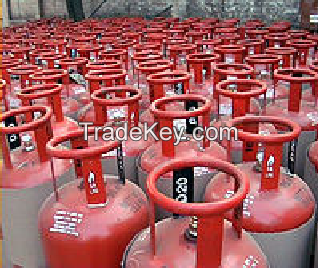


سعر فوب
أحصل على آخر سعر|
50000 Metric Ton Minimum Order
بلد:
Malaysia
نموذج رقم:
-
سعر فوب:
الموقع:
-
سعر الحد الأدنى للطلب:
-
الحد الأدني للطلب:
50000 Metric Ton
تفاصيل التغليف:
-
موعد التسليم:
-
القدرة على التوريد:
-
نوع الدفع:
-
مجموعة المنتج :
-
Malaysia
الشخص الذي يمكن الاتصال به nada
kepong, kualalumpur, malaysia
Liquefied petroleum gas or liquid petroleum gas(LPG or LP gas),
also referred to as
simply propaneor butane, are flammable mixtures of hydrocarbon
gases used as fuel in heating
appliances, cooking equipment, and vehicles.
It is increasingly used as an aerosol propellant and a
refrigerant,
replacing chlorofluorocarbons in an effort to reduce damage to the
ozone layer. When
specifically used as a vehicle fuel it is often referred to as
autogas.
Varieties of LPG bought and sold include mixes that are primarily
propane (C3H
8), primarily butane (C4H*0) and, most commonly, mixes including
both propane and butane. In
winter, the mixes contain more propane, while in summer, they
contain more butane. In
the United States, primarily two grades of LPG are sold: commercial
propane and HD*5. These
specifications are published by the Gas Processors Association
(GPA) and the American Society
of Testing and Materials (ASTM). Propane/butane blends are also
listed in these specifications.
Propylene, butylenes and various other hydrocarbons are usually
also present in small
concentrations. HD*5 limits the amount of propylene that can be
placed in LPG to 5%, and is
utilized as an autogas specification. A powerful odorant,
ethanethiol, is added so that leaks can
be detected easily. The international standard is EN **9. In the
United
States, tetrahydrothiophene (thiophane) oramyl mercaptans are also
approved odorants, although
neither is currently being utilized.
LPG is prepared by refining petroleum or "wet" natural gas, and is
almost entirely
derived from fossil fuel sources, being manufactured during the
refining of petroleum (crude oil),
or extracted from petroleum or natural gas streams as they emerge
from the ground. It was first
produced in ***0 by Dr. Walter Snelling, and the first commercial
products appeared in ***2. It
currently provides about 3% of all energy consumed, and burns
relatively cleanly with no
soot and very few sulfur emissions. As it is a gas, it does not
pose ground or pollution hazards,
but it can cause air pollution. LPG has a typical specific
calorific value of *6.1 MJ/kg compared
with *2.5 MJ/kg for fuel oil and *3.5 MJ/kg for premium grade
petrol (gasoline). However,
its energy density per volume unit of *6 MJ/L is lower than either
that of petrol or fuel oil, as
its relative density is lower (about 0.*0.*8 kg/L, compared to
0.**0.*7 kg/L for gasoline).
As its boiling point is below room temperature, LPG will evaporate
quickly at normal
temperatures and pressures and is usually supplied in pressurized
steel vessels. They are typically
filled to ***5% of their capacity to allow for thermal expansion of
the contained liquid. The
ratio between the volumes of the vaporized gas and the liquefied
gas varies depending on
composition, pressure, and temperature, but is typically around
**0:1. The pressure at which
LPG becomes liquid, called its vapour pressure, likewise varies
depending on composition and
temperature; for example, it is approximately **0 kilopascals (*2
psi) for pure butane at *0 °C
(*8 °F), and approximately 2,**0 kilopascals (**0 psi) for pure
propaneat *5 °C (**1 °F). LPG is
heavier than air, unlike natural gas, and thus will flow along
floors and tend to settle in low
spots, such as basements. There are two main dangers from this. The
first is a possible explosion
if the mixture of LPG and air is within the explosive limits and
there is an ignition source. The
second is suffocation due to LPG displacing air, causing a decrease
in oxygen concentration.
Large amounts of LPG can be stored in bulk cylinders and can be
buried underground.
| بلد: | Malaysia |
| نموذج رقم: | - |
| سعر فوب: | أحصل على آخر سعر |
| الموقع: | - |
| سعر الحد الأدنى للطلب: | - |
| الحد الأدني للطلب: | 50000 Metric Ton |
| تفاصيل التغليف: | - |
| موعد التسليم: | - |
| القدرة على التوريد: | - |
| نوع الدفع: | - |
| مجموعة المنتج : | - |